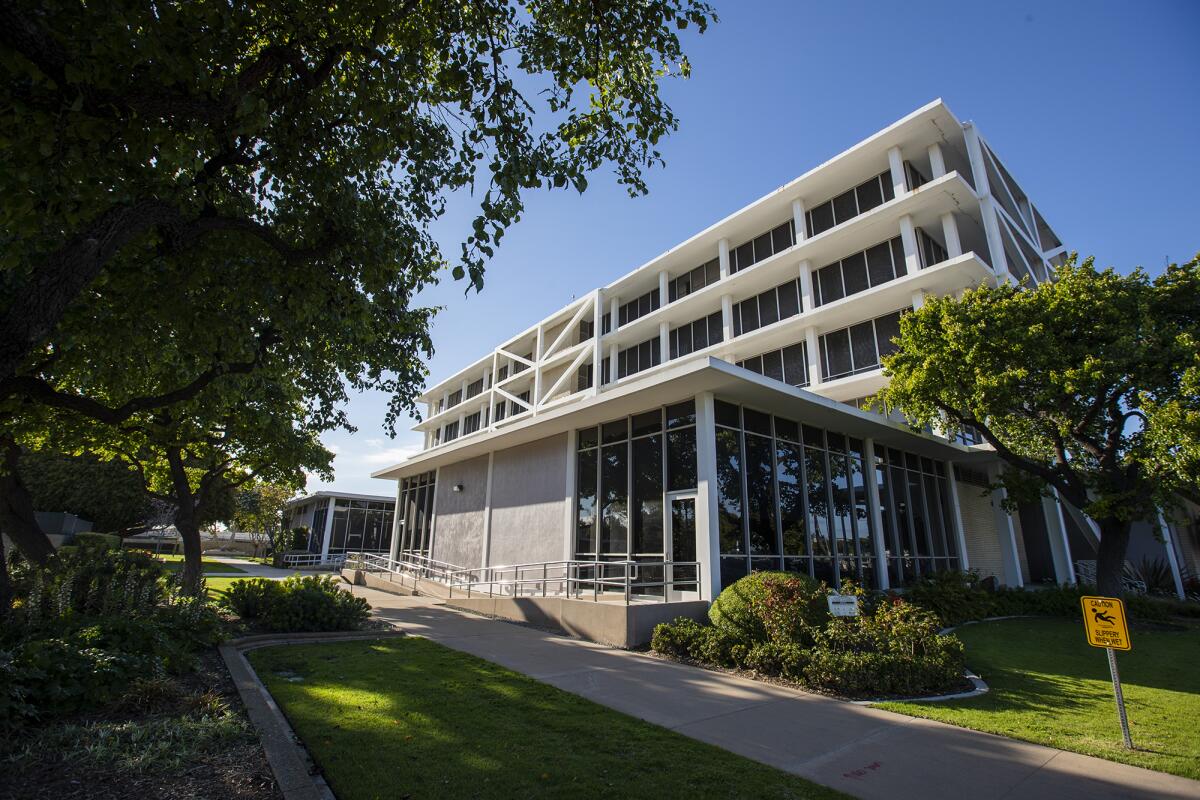Costa Mesa finances sailing smoothly with $4.3M revenue surplus, ease in pension obligation

- Share via
Nearly three years ago, in the throes of the pandemic, Costa Mesa number crunchers stared into the abyss of a possible $18.5-million loss in tax revenue as officials planned furloughs and departmental budget cuts to keep the city afloat.
Last week, however, a snapshot of Costa Mesa’s financial picture appeared much sunnier, as staff reported a general fund revenue surplus of $4.3 million, thanks to the intake of $77.3 million in sales tax revenue — roughly $13.5 million over last fiscal year — and another $8.4 million in transient occupancy tax from hotel stays.
“We did achieve a banner year of $165.7 million in revenue, the highest amount we’ve ever recorded,” finance director Carol Molina told the City Council at a Feb. 7 meeting, delivering a comprehensive report of Fiscal Year 2021-22 finances.
That figure was attributable, in part, to the receipt of some $5.2 million in one-time funding that cannot be counted on in future years, including a portion of the more than $26 million Costa Mesa received in federal American Rescue Plan Act funding.
Molina shared how the city used its first $13.1-million installment of ARPA funding, given to help alleviate the impact of the pandemic on municipalities throughout the nation.
Nearly $2.3 million was used to reinstate staff hours and salaries after the furlough. Another $2 million was used in a grant program for small local businesses struggling due to pandemic closures, while some $668,000 was used for COVID-related homeless services and accommodation.
The city transferred an additional $4 million into disaster relief reserve funds, while reinstating defunded positions and budget cuts across departments and paying more than $2 million to bolster an account set aside to prefund pensions and other retirement obligations.
Of Costa Mesa’s second installment of ARPA funding, about $4,975,000 has been so far been committed toward conversion of a local Motel 6 into permanent supportive housing under the state’s Project Homekey ($3.5 million), a $975,000 allocation toward the opening of an affordable housing project, the Bungalows, and $500,000 in rental assistance for low-income residents.
“We still have $8.3 million of ARPA funds to utilize in Fiscal Year 2022-23,” Molina told the City Council.
The influx of revenue allowed officials to contribute to the city’s reserve fund, which now has a balance of $57.7 million — nearly $3 million more than the recommended threshold previously set by the council. Staff also recommended placing $1 million into a workers compensation coverage account, which would cover half of the city’s deductible toward a major claim, and $2 million into a facilities reserve account.
The City Council voted unanimously to make some cuts to the city budget and defer some costly capital improvement plans, to avoid dipping heavily into the city’s reserve funds.
City Manager Lori Ann Farrell Harrison explained the funds would allow the city to begin saving for needed renovations, unforeseen costs and other projects on the city’s wish list.
“This was kind of our recommendation, given all the things, all the balls in the air and all the different competing needs of the city, where we could at least start to make some progress in these areas where we don’t have a lot of funding,” Farrell Harrison said.
“It’s a wonderful problem to have, to have to decide where to allocate additional funding.”
In addition to the city’s revenue windfall, Molina reported a decrease in the city’s net pension liability of $82.8 million, bringing the amount to $229.6 million, due to recent market trends, a point Mayor John Stephens emphasized.
“The public really needs to know about these performance numbers and these types of statistics,” he said. “Performance indicators in the past, in politics, I must say, have been misstated. So, it’s good to get the facts out there.”
All the latest on Orange County from Orange County.
Get our free TimesOC newsletter.
You may occasionally receive promotional content from the Daily Pilot.





